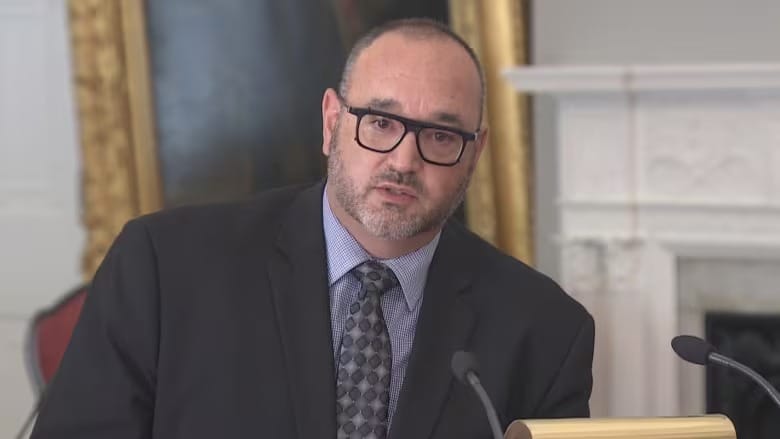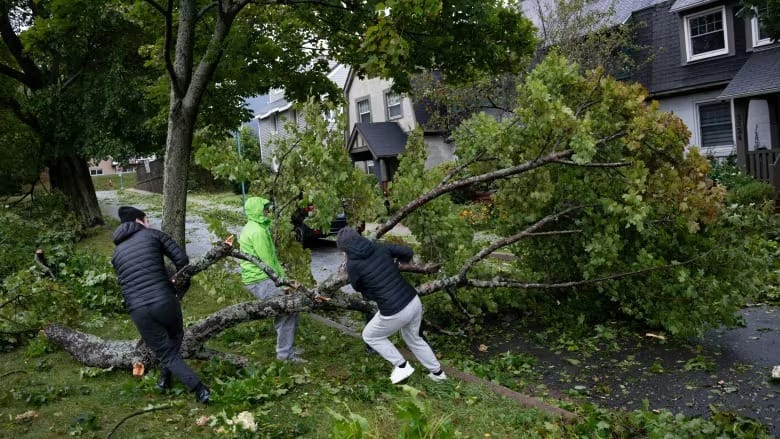Nova Scotia to reduce HST by one percentage point to 14 per cent
The change requires legislative changes and is supposed to come into effect April 1, 2025

Nova Scotia Premier Tim Houston has announced a plan to cut the province’s sales tax by one percentage point, just days ahead of an expected snap election call.
Nova Scotia’s current harmonized sales tax (HST) rate stands at 15 per cent, with 5 per cent going to the federal government and 10 per cent to the province. Houston’s proposal aims to reduce the provincial share to 9 per cent, lowering the total HST to 14 per cent.
The reduction is set to take effect on April 1, 2025.
At the news conference where the tax cut was revealed, Houston began by addressing healthcare, which was central to his party's platform in the 2021 election. That promise played a key role in bringing his party to power.
“Between the 2021 election and now, things have changed — the world has changed in many ways,” Houston said. “Health care was the No. 1 priority for Nova Scotians back then, and it still is, but now affordability is also a major concern.”
“People are struggling with the rising costs of everyday items, and they feel it with every purchase,” he added.
The provincial government has notified the Canada Revenue Agency, as 120 days' notice is required to implement tax changes. The government will also need to pass legislation to make the cut official.
The reduction is expected to result in a loss of more than $260 million in tax revenue. Houston did not provide specifics on how the shortfall will be managed, saying only that it would be addressed “as part of the budget process” and described the tax cut as “an investment.”
"I'm confident in our ability to manage the province’s finances," he said.
Since taking office, Houston's government has tabled deficit budgets but ended its first two fiscal years with surpluses.
This would be the first adjustment to Nova Scotia's HST in 14 years. The last change was a two-point increase introduced by the NDP government.
Opposition Responses
Earlier this year, Liberal leader Zach Churchill promised to reduce the HST by two points, returning it to the pre-2010 rate of 13 per cent. At the time, Houston acknowledged that tax relief was becoming necessary, saying the province was “close to a point” where taxation would become a priority.
However, Houston now claims that the Liberals' proposed two-point reduction is currently unfeasible, a point Churchill disputes.
“All the premier would need to do to offer a larger tax cut is stick to his own budget,” Churchill told reporters, referencing what he described as overspending by the Progressive Conservative government. The Auditor General and opposition parties have repeatedly criticized the government for a lack of financial accountability and transparency.
NDP leader Claudia Chender also expressed skepticism about the timing of Houston’s announcement, suggesting it was motivated by election strategy.
"People will likely welcome a tax cut, but what we saw here today felt more like a campaign speech," Chender told reporters.
Chender argued that cutting the HST would primarily benefit wealthier individuals.
“It helps those who buy the most, but what we need right now is targeted relief for those struggling the most,” she said.
She reiterated the NDP’s proposal to remove HST from essential goods, such as groceries, and to expand the home heating assistance rebate.
Regional Comparisons
Currently, the HST stands at 15 per cent in New Brunswick, Prince Edward Island, and Newfoundland and Labrador. Ontario has a 13 per cent HST.
The three territories and Alberta only apply the 5 per cent federal GST, while Saskatchewan, Manitoba, British Columbia, and Quebec each levy a provincial sales tax alongside the GST, with rates ranging from 6 to nearly 10 per cent.
Nova Scotia’s next fixed election date is scheduled for next summer, but speculation is growing that Houston will call an early election, with an announcement expected as soon as this weekend.





